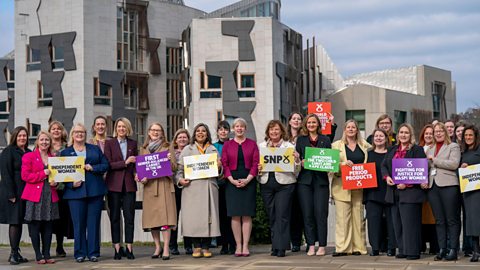How has gender inequality changed?
Gender inequality has reduced with changes in society
Changes in the economy have made a difference too. The old manufacturing industries which provided jobs in Scotland such as coal, steel and shipbuilding have been replaced by тservice sectorт jobs in tourism, education, banking, IT and law. Women compete for these jobs on much more equal terms.
Gender inequality т societal changes
Women make up the majority of professional workers in many countries. Sexist behaviour at work is illegal. The UK has passed important Acts of Parliament, including the Equal Pay Act (1970) and the Sex Discrimination Act (1975), that have contributed to making society more equal for men and women. (All Acts addressing discrimination in the UK have been brought together and strengthened in the Equality Act of 2010.)
Changes in the economy have made a difference too. The old manufacturing industries which provided jobs in Scotland such as coal, steel and shipbuilding have been replaced by тservice sectorт jobs in tourism, education, banking, IT and law. Women compete for these jobs on much more equal terms.
Flexible working
An increasing number of companies are seeing the benefits of flexible working. Staff are employed on annual rather than weekly hours and many come into work later or go home earlier, enabling them to look after children. Some businesses allow their staff to work nine days per fortnight and more people now work from home.
As people live and work longer, companies are rethinking the structure of their career opportunities. Many offer unpaid leave and/or career breaks.
Women in politics
In politics there is often an under-representation of women. In the UK Parliament only 31% (225 from 650 MPs) of MPs were women in 2023. This is an increase from 29% in 2015 but this is still low considering the UK population is 51% female.

There is no evidence that women are less interested in politics than men. However, getting involved in politics is time consuming as political life means elected representatives must attend many evening meetings and are expected to be тalways available, anytimeт by phone, email or social media. As women tend to have greater family commitments, such as looking after children and elderly relatives, they are therefore less likely to get involved in politics.
The Scottish Parliament has led the way in having more family-friendly working hours and holidays and this has helped increase womenтs representation. In 2023, there were 58 female MSPs in the Scottish out of 129 which was 45% of all MSPs.
When Nicola Sturgeon was First Minister, she appointed her cabinet of Scottish Government ministers with a 50-50 balance of men and women. However, the balance of men and women MSPs still does not reflect the population of Scotland.